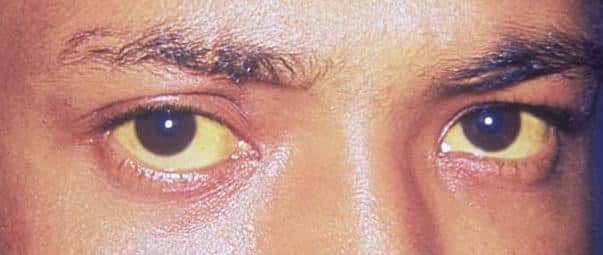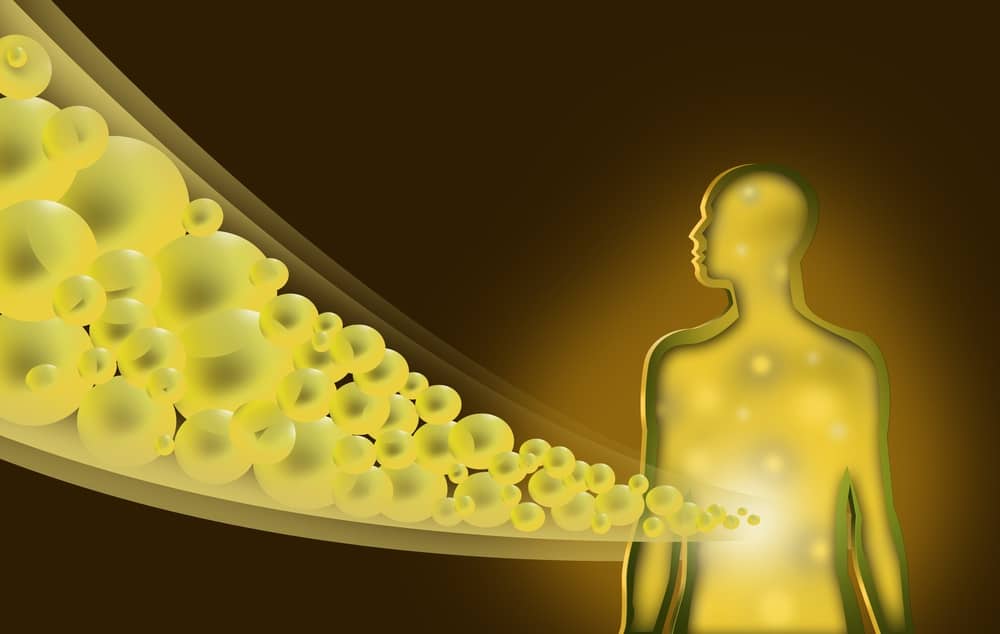We’ve all heard that the eyes are the window to the soul, but did you know they provide a pretty good insight into the overall health of our bodies too. So what does it mean if we develop yellow eyes?
[toc]The whites of our eyes are referred to as ‘white’ for a reason. This area is known as the sclera, and is a great indicator of our health. If this area turns yellow, it’s usually a sign that something is going on in our body that is causing jaundice, a condition that causes our skin and eyes to yellow.
What is Jaundice?
Jaundice is when a yellow substance called bilirubin builds up in the body causing our skin and the whites of our eyes to change colour. Bilirubin is a yellow substance found in bile and is created by the liver to help break down fats.
Jaundice is particularly common in newborn babies and is often harmless. The condition can also occur in adults, however it’s often a cause for concern as it is a sign that something isn’t functioning properly in your body.
The Most Common Symptoms Of Jaundice
- Itchy skin
- Yellow mucus in the mouth and nose
- Stomach pain
- Weight loss
- Darker colour of urine
- Tiredness
Want To Find Out If You’re Suitable?
If you’re wondering whether laser eye treatment is the right choice for you, there are some key things to consider…
What do yellow eyes look like?
Yellow eyes mainly affects the front of the eye as it is the place where the yellow pigment is visible. Here are the areas of the eye jaundice does and doesn’t affect:

- Sclera – this area surrounds the iris and protects the fragile structures within your eye. This is the place jaundice is often first noticed as it turns yellow
- Eyelid and lashes – if jaundice is present, both our outer eyelids and the underside of the eyelid that we can see when the lid is lifted, could have a yellow tinge
- Iris – the coloured part of the eye surrounding the pupils, a yellow can can be seen if someone is suffering from jaundice
- Pupil – one of the only front parts of the eye that cannot show signs of jaundice
Common causes of yellow eyes and skin:
So what are the common causes of yellow eyes? Please see some of the reasons below:
Liver disease and damage
A key indicator of problems in your liver is when jaundice occurs, When your liver is inflamed, infected or damaged, the organ is unable to process bilirubin properly, which causes it to build up as a result. The excessive intake of alcohol can cause liver damage, preventing it from functioning properly. When this happens a type of jaundice known as hepatocellular jaundice emerges.
Gallstones
A small number of people that experience gallstones develop serious problems. This occurs if the gallstones cause a severe blockage or move into another part of the digestive system. Gallstones can block bile ducts, which prevents the flow of bile. The buildup of this substance can cause the gallbladder to become infected and inflamed. In addition, a blocked or swollen bile duct prevents bile entering the liver, which needs this substance to dispose bilirubin. This is known as obstruction jaundice and whilst some gallstones can become unstuck by themselves, some of them need to be removed.
Hemolytic anemia
Essentially, this is when red blood cells are being broken down too quickly, which as a result increases the production of bilirubin. Each day around 1% of red blood cells are disposed of so new ones can take its place. Bilirubin remains in the liver whilst these cells are being disposed of, so when too many red blood cells are being sent to the liver, this substance increases, causing jaundice as a result.
Other causes of jaundice include
- Liver and pancreatic cancers
- Pancreatitis – infection of the pancreas causing it to swell and lead to jaundice
- Malaria – mosquito-borne blood infection can lead to jaundice.
How To Get Rid Of Jaundice And Yellow Eyes?
See the three best ways to ged rid of yellow eyes and take the first steps to improving your overall health:
1. Consult your GP

It’s important to pinpoint the underlying cause of the yellowish tinge in your eyes and skin as soon as possible
2. Avoid drinking alcohol
If you believe you may be suffering from liver damage, stay off the booze for a while to reduce jaundice. Discuss with your doctor a treatment plan if needed
3. Increase your iron intake

This is if your yellowish eyes are a result of having anemia. Beef, chicken, beans and green leafy vegetables are great foods to increase your iron

